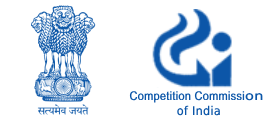Well Known Trademarks in India
The Indian Trademark Law accords extraordinary protection to trade marks that are “well known” and safeguards them from the vices of infringement or passing off. The Indian Intellectual Property Office recognizes well-known trademarks in India on the basis of their international, national and cross border reputation.
The Trade Marks Act, 1999 provides protection to well-known trademarks at two levels-
- Against the registration of any similar marks.
- Action against the misuse of well-known trademark
Well Known Trademark Meaning under the Trade Marks Act, 1999:
The relevant statutory provisions under the Trade Marks Act, 1999 relating to well-known marks are as under:
Section 2(1)(zg) defines well- known trade mark as-
A “well-known trade mark”, in relation to any goods or services, means a mark which has become so to the substantial segment of the public which uses such goods or receives such services that the use of such mark in relation to other goods or services would be likely to be taken as indicating a connection in the course of trade or rendering of services between those goods or services and a person using the mark in relation to the first-mentioned goods or services.
Provisions under the Trade Marks Act, 1999
Section 11 (6) of the Act specifically lays down the various factors to be taken into account by the Registrar while determining whether a trade mark is a well-known trade mark.
- the knowledge or recognition of that trade mark in the relevant section of the public including knowledge in India obtained as a result of promotion of the trade mark;
- the duration, extent and geographical area of any use of that trade mark;
- the duration, extent and geographical area of any promotion of the trade mark, including advertising or publicity and presentation, at fairs or exhibition of the goods or services to which the trade mark applies;
- the duration and geographical area of any registration of or any application for registration of that trade mark under this Act to the extent they reflect the use or recognition of the trade mark;
- the record of successful enforcement of the rights in that trade mark; in particular, the extent to which the trade mark has been recognised as a well-known trade mark by any court or Registrar under that record.
Section 11 (7) provides that the Registrar shall, while determining as to whether a trade mark is known or recognised in a relevant section of the public for the purposes of sub-section (6), take into account—
- the number of actual or potential consumers of the goods or services;
- the number of persons involved in the channels of distribution of the goods or services;
- the business circles dealing with the goods or services, to which that trade mark applies.
Section 11(8) provides that where a trade mark has been determined to be well-known in at least one relevant section of the public in India by any court or Registrar, the Registrar shall consider that trade mark as a well-known trade mark for registration under this Act.
Section 11 (9) provides that the Registrar shall require as a condition, for determining whether a trade mark is a well-known trade mark, any of the following, namely:—
- that the trade mark has been used in India;
- that the trade mark has been registered;
- that the application for registration of the trade mark has been filed in India;
- that the trade mark—
a. is well known in; or
b. has been registered in; or
c. in respect of which an application for registration has been filed in, any jurisdiction other than India; or
d. that the trade mark is well-known to the public at large in India.
Section 11 (10) further provides an obligation on the Registrar of Trade Marks that that while considering an application for registration of a trade mark and opposition filed in respect thereof, he shall protect a well-known trade mark against the identical or similar trade marks;
As per Rule 124 of the Trade Marks Rules, 2017, any person may file a request for determination of a trade mark as well-known along with an official fee of INR 1,00,000. Such request can be filed via e-module only. Further, the said request shall be accompanied by a statement of case along with all the evidence and documents relied by the applicant in his claim. The Registrar may call further such documents as he thinks fit for the determination of well-known mark.
Moreover, before determining a trade mark as well-known, the Registrar may invite objections from the general public to be filed within thirty days from the date of invitation of such objection. Nonetheless, the Registrar may, at any time remove the trade mark from the list of well-known marks after giving an opportunity of hearing to the concerned party if it is found that a trade mark has been erroneously or inadvertently included in the said list.
Cost of filing a well-known trademark application in India
As per Rule 124 of the Trade Marks Rules, 2017, any person may file a request for determination of a trade mark as well-known along with an official fee of INR 1,00,000. This fee is for one mark only.
Well known trademarks recordal system in India
As such there is no separate recordal system of well-known trademarks in India till now. However, a list of well-known trade marks in India can be accessed at https://ipindiaonline.gov.in/tmrpublicsearch/wellknownmarks.aspx.
Well known trademarks Protection under Trade Marks Act, 1999 in India
The Trade Marks Act, 1999 provides protection to well-known trademarks at two levels:
- Against the registration of any similar mark.
- Action against any misuse of well-known trademark
Indian Court’s Stance on Well Known Trademarks:
Prior to the formulation of statutory provisions for protection of well- known marks in India, such marks were protected through common law principles like passing off and injunction. Few examples illustrating the same areas under:
In the case of Daimler Benz Akietgesellschaft v Hybo Hindustan, the Plaintiff sought an injunction against the Defendants who were using the Plaintiff’s famous logo (the roundel logo) and the word ‘Benz’. In this case, the Court considering the Plaintiff’s mark to be well known on account of trans-border reputation and goodwill granted injunction against the Defendants who were using the impugned marks for selling their apparel.
Another case in which the Court granted relief of injunction is the case of Whirlpool Co & Anr v. N R Dongre. In this case the Plaintiff i.e. Whirlpool had not subsequently registered their trademark in India. However, the Plaintiff by virtue of use and advertisements in International magazines had a worldwide reputation and used to sell their machines in the US embassy in India. Meanwhile, the Defendant started using the impugned mark on its washing machines. Thereafter the Plaintiff brought an action against the Defendant and the Court held that the plaintiff had an established ‘transborder reputation’ in India and hence the Defendants were injuncted from using the same for their products.
Pursuant to the enactment of statutory provisions for protection of “well- known marks”, the Indian Courts have in various cases invoked the same and successfully protected the well known trademarks from infringement or passing- off. Few examples illustrating the same areas under:
Rolex Sa vs Alex Jewellery Pvt Ltd & Ors. (2009 (41) PTC 284 (Del) – In this case the Plaintiff brought an action against the Defendant so as to restrain them from dealing in artificial jewellery or in any other product bearing the trade name ROLEX. In the said case the Court while invoking Section 2(z)(g) was of the view that the segment of the public which uses the watches of the category/price range as the watches of the plaintiff, is a well-known trademark. The said segment of the public if comes across jewellery/artificial jewellery also bearing the trademark is likely to believe that the said jewellery has a connection to the plaintiff. The Court considered the provisions of Section 11(6) of the Act and opined that “upon testing the trademark of the plaintiff on the touchstone of the ingredients of the said provision also, I find the said trademark of the plaintiff to be satisfying the test of a well known trademark.”
In the case of Indian Shaving Products Ltd. vs Gift Pack & Anr. (1998) PTC 698 (Del) the Delhi High Court passed its judgment in favor of the Plaintiff. In the said case the factor determining reputation of a mark under Section 11(6) i.e. the duration, extent and geographical area of any use of the trademark was dealt with. The defendants in the case alleged that the plaintiff had used the trademark for a very short period and hence could not have acquired the necessary goodwill and reputation during the said period. However, the Court while determining facts of the case observed that the Plaintiff had achieved high sales and advertised heavily thereby eliminating the requirement of long duration of sale.
Similarly in the case of Marico Ltd v. Madhu Gupta, I A Nos 15565 and 16243/2009 in CS (OS) No 2275/2009, High Court of Delhi (7 April 2010) the Court while deciding dispute relating to the trademark “KAYA”, considered the fact that the Plaintiffs had spent huge amount of money in their advertisements and thus has attained distinctiveness and according the Court granted injunction in favor of Plaintiff.
Related Posts
Trademark Application in India
For more information on well-known trademarks in India, please write to us at info@ssrana.com.








